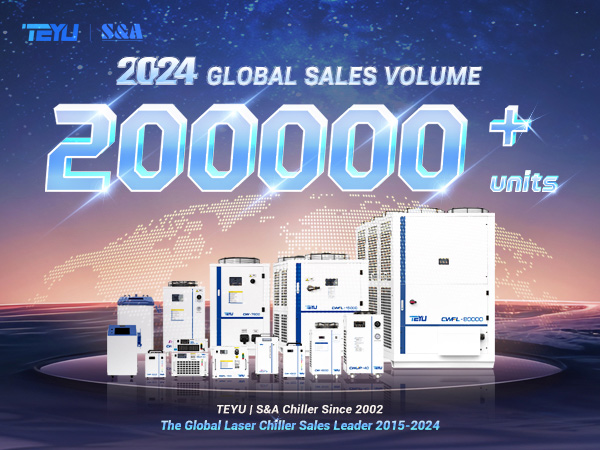CO2 laser technology enables precise, non-contact engraving and cutting of short plush fabric, preserving softness while reducing waste. Compared to traditional methods, it offers greater flexibility and efficiency. TEYU CW series water chillers ensure stable laser operation with precise temperature control.
Overcoming Challenges of Traditional Processing Methods
A leading home textile manufacturer has adopted CO2 laser processing systems to produce high-end short plush bedding. Traditional mechanical embossing methods exert pressure on the fabric, causing fiber breakage and plush collapse, which significantly affects softness and aesthetics. In contrast, CO2 laser technology enables intricate pattern engraving without physical contact, preserving the fabric's soft texture.
Comparison of Traditional Processing and CO2 Laser Advantages
1. Structural Damage in Mechanical Embossing: Traditional mechanical embossing requires significant pressure, leading to fiber breakage and plush flattening, resulting in a hardened texture. CO2 laser technology, utilizing a thermal effect, enables non-contact engraving by vaporizing surface fibers while maintaining the fabric's structural integrity.
2. Pattern Complexity and Production Flexibility: Mechanical embossing involves high mold engraving costs, long modification cycles, and high losses for small-batch orders. CO2 laser technology allows direct import of CAD design files into the cutting system, enabling real-time modifications with minimal switching time. This flexibility perfectly suits customized production demands.
3. Waste Rate and Environmental Impact: Traditional cutting methods generate high fabric waste, and chemical fixing agents increase wastewater treatment costs. CO2 laser technology, combined with AI-based nesting systems, optimizes material utilization. Additionally, high-temperature edge sealing minimizes wastewater discharge, reducing both waste rates and environmental costs.
The Critical Role of Water Chillers in Short Plush Processing
Water chiller systems play a vital role in short plush fabric processing. Since short plush has a low ignition point, maintaining stable laser tube temperatures is crucial. Specialized water chillers dynamically adjust cooling to prevent localized overheating, which could cause fiber carbonization, ensuring smooth cutting edges and prolonging the lifespan of optical components.
The processing of short plush generates substantial airborne particles. Water chillers equipped with high-efficiency filtration and water purification modules extend the maintenance cycle of optical lenses. Moreover, dynamic temperature control modes match different processing stages: during engraving, lower water temperatures enhance beam focusing for high-precision texture engraving, while during cutting, slightly elevated water temperatures ensure clean cuts through multiple fabric layers.
TEYU CW series CO2 laser chillers offer precise temperature control and efficient cooling, providing cooling capacities from 600W to 42kW with an accuracy of 0.3°C – 1°C, ensuring stable operation of CO2 laser systems.
In the short plush home textile industry, the synergy between CO2 laser technology and advanced water chiller solutions effectively addresses the limitations of traditional methods, driving innovation in textile processing.

We're here for you when you need us.
Please complete the form to contact us, and we'll be happy to help you.
Copyright © 2025 TEYU S&A Chiller - All Rights Reserved.